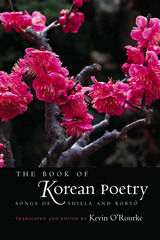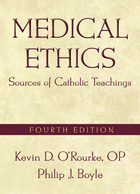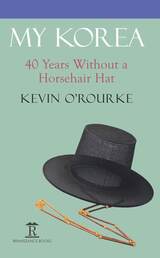
During the past few decades, high-profile cases like that of Terry Schiavo have fueled the public debate over forgoing or withdrawing artificial nutrition and hydration from patients in a persistent vegetative state (PVS). These cases, whether involving adults or young children, have forced many to begin thinking in a measured and careful way about the moral legitimacy of allowing patients to die. Can families forgo or withdraw artificial hydration and nutrition from their loved ones when no hope of recovery seems possible?
Many Catholics know that Catholic moral theology has formulated a well-developed and well-reasoned position on this and other end-of-life issues, one that distinguishes between "ordinary" and "extraordinary" treatment. But recent events have caused uncertainty and confusion and even acrimony among the faithful. In his 2004 allocution, Pope John Paul II proposed that artificial nutrition and hydration is a form of basic care, thus suggesting that the provision of such care to patients neurologically incapable of feeding themselves should be considered a moral obligation. The pope's address, which seemed to have offered a new development to decades of Catholic health care ethics, sparked a contentious debate among the faithful over how best to treat permanently unconscious patients within the tenets of Catholic morality.
In this comprehensive and balanced volume, Ronald Hamel and James Walter present twenty-one essays and articles, contributed by physicians, clergy, theologians, and ethicists, to reflect the spectrum of perspectives on the issues that define the Catholic debate. Organized into six parts, each with its own introduction, the essays offer clinical information on PVS and feeding tubes; discussions on the Catholic moral tradition and how it might be changing; ecclesiastical and pastoral statements on forgoing or withdrawing nutrition and hydration; theological and ethical analyses on the issue; commentary on Pope John Paul II's 2004 allocution; and the theological commentary, court decisions, and public policy resulting from the Clarence Herbert and Claire Conroy legal cases.
A valuable resource for students and scholars, this teachable volume invites theological dialogue and ethical discussion on one of the most contested issues in the church today.



In the wake of the successful cloning of animals and the promises—or fears—of stem cell research, new discoveries in science and medicine need more than ever to be accompanied by careful moral reflection. Contending that concern over the ethical dimensions of these and other like issues are no longer just in the domain of those involved in medical practice, the third edition of Ethics of Health Care claims these are vital topics that should matter deeply to all citizens.
While stressing the Catholic tradition in health care ethics, Ethics of Health Care is ecumenical, incorporating a broader Christian tradition as well as humanistic approaches, and takes as common ground for mutual understanding the Universal Declaration of Human Rights of the United Nations. This new third edition is a response to the many developments in theology and the startlingly rapid changes in the arenas of medicine and health care over the past decade, from the dominance of managed care to increased surgery on an "outpatient" basis; from hospice care for the dying to the increasing use of drugs in the treatment of mental illness.
Revised and thoroughly up-to-date, this third edition continues with its valuable teaching aids, including case studies, study questions, chapter summaries, a bibliography, and complete index.

Health Care Ethics is a comprehensive study of significant issues affecting health care and the ethics of health care from the perspective of Catholic theology. It aims to help Christian, and especially Catholic, health care professionals solve concrete problems in terms of principles rooted in scripture and tested by individual experience; however, its basis in real medical experience makes this book a valuable resource for anyone with a general interest in health care ethics.
This fifth edition, which includes important contributions by Jean deBlois, C.S.J., considers everyday ethical questions and dilemmas in clinical care and deals more deeply with issues of women's health, mental health, sexual orientation, artificial reproduction, and the new social issues in health care. The authors devote special attention to the various ethical theories currently in use in the United States while clearly presenting a method of ethical decision making based in the Catholic tradition. They discuss the needs of the human person, outlining what it means to be human, both as an individual and as part of a community.
This volume has been significantly updated to include new discussions of recent clinical innovations and theoretical issues that have arisen in the field:
• the Human Genome Project• efforts to control sexual selection of infants• efforts to genetically modify the human genotype and phenotype• the development of palliative care as a medical specialty• the acceptance of non-heart beating persons as organ donors• embryo development and stem cell research• reconstructive and cosmetic surgery• nutrition and obesity• medical mistakes• the negative effects of managed care on the patient-physician relationship• recent papal allocution regarding care of patients in a persistent vegetative state and palliative care for dying patients

This fourth edition of Health Care Ethics provides a contemporary study of broad and major issues affecting health care and the ethics of health care from the perspective of Catholic teachings and theological investigation.
It aims to help Christian, and especially Catholic, health care professionals solve concrete problems in terms of principles rooted in Scripture and tested by individual experience.
Since the last edition of Health Care Ethics, there have been many changes in the fields of health care medicine and theology that have necessitated a fourth edition. Ashley and O'Rourke have revised their seminal work to address the publication of significant documents by the Church and the restructuring of the health care system.
Features of the revised fourth edition:
• Discusses significant Church documents issued since the third edition includes "The Splendor of Truth" (Veritatis Splendor), and the "Gospel of Life" (Evangelium Vitae); the "Instruction on the Vocation of Theologians"; the Catechism of the Catholic Church; and the Revised Ethical and Religious Directives for Catholic Health Services.
• Examines the implications of managed care techniques.
• Probes such changes in the practice of medicine as the new emphasis on preventive care, the involvement of individuals in their own care, greater use of pharmaceuticals in psychiatry, and the greater role of genetics in diagnosis and prognosis.
• Explores the quest for more compassionate care of the dying.
• Updates the bibliography.

In a single convenient resource, this revised and updated edition of a classic text organizes and presents clearly the documents of the Catholic Church pertaining to medical ethics. Introductory chapters provide the context for interpreting the Church's teachings and theological values, guiding the reader in how to apply the teachings to particular ethical dilemmas and helping the reader to understand the role of conscience within the Catholic tradition.
The teaching of the Church in regard to health care ethics is pertinent not only for health care professionals and students, but for all who are concerned about the common good of society. Medical Ethics examines specific teachings of the Church on over seventy issues in clinical and research ethics, including abortion, AIDS, artificial insemination, assisted suicide, cloning, contraception, euthanasia, gene therapy, health care reform, organ donation and transplantation, organizational ethics, stem cells, surrogate motherhood, and withholding and withdrawing life support.
O'Rourke and Boyle bring this fourth edition up to the present day by incorporating recent papal documents regarding the social aspects of health care, assent to Church teaching, and the 2008 papal instruction Dignitas personae, an extremely influential document that illuminates such controversial dilemmas as prenatal adoption, frozen embryos, and genetic diagnosis.

In a single convenient resource, this book organizes and presents clearly the documents of the Catholic church pertaining to medical ethics. Introductory chapters provide the context for interpreting the Church's teachings and guide the reader in applying the teachings to particular ethical quandaries.
This third edition has been updated to incorporate the statements issued since the preparation of the second edition. The authors have revised the introductory chapters to include ideas from the papal encyclical Splendor Veritatis and "Instruction of the Ecclesial Vocation of the Theologian," published by the Vatican Congregation for the Doctrine of the Faith, concerning the various levels of the teachings of the Church. Other new statements included in this edition are relevant topics from the papal encyclical Evangelium Vitae (abortion, euthanasia, amniocentesis, suicide and withdrawing life support); the Vatican Congregation of Doctrine and Faith on uterine isolation; the U.S. bishops on the care of anencephalic infants, genetic testing, and cloning; and the Pennsylvania Catholic Conference on the treatment for rape in Catholic hospitals.


From Harry and Louise through the McCaughey septuplets, this book explains stories and issues in health care ethics that have appeared in the news media. Written for the general reader in a pluralistic society, it outlines and applies principles of justice from the Catholic tradition to contemporary problems that increasingly affect us all.
This second edition contains extensive new material and new topics, including physician-assisted suicide, managed care, organ donation, genetic testing, cloning, and the question of futility. Aimed at a wide audience, this book will also be useful for introductory ethics courses in colleges and high schools.
READERS
Browse our collection.
PUBLISHERS
See BiblioVault's publisher services.
STUDENT SERVICES
Files for college accessibility offices.
UChicago Accessibility Resources
home | accessibility | search | about | contact us
BiblioVault ® 2001 - 2024
The University of Chicago Press









